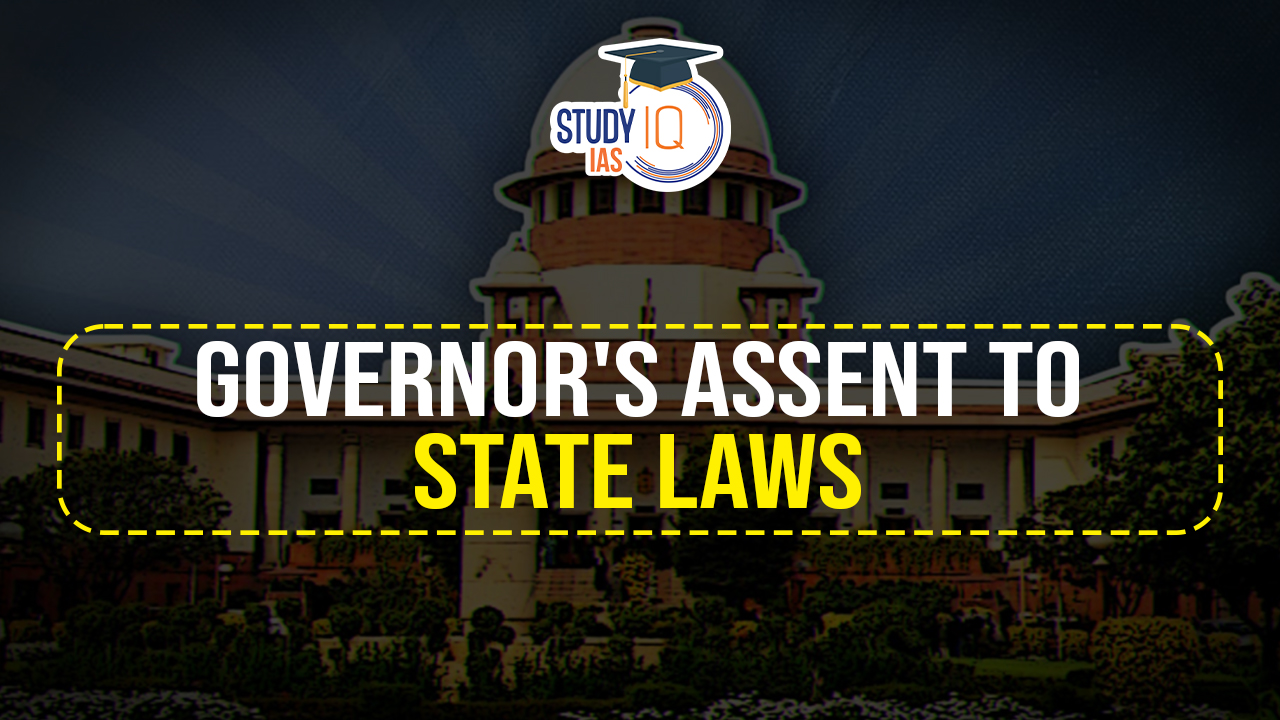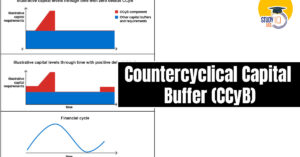Table of Contents
Context: The Supreme Court has delivered a strong judgment against Tamil Nadu Governor R.N. Ravi for inaction on 10 Bills passed by the Tamil Nadu State Legislature.
Key points of the Supreme Court Judgment on Governor’s Assent to State Laws and Bills
- Governor’s Inaction Unconstitutional:
- SC held that the prolonged delay by the Tamil Nadu Governor in acting on 10 Bills was unconstitutional and violated Article 200 of the Constitution.
- Assent Deemed Given:
- The court used its powers under Article 142 to deem that all 10 re-passed Bills had received valid assent.
- Governor Cannot Delay Indefinitely:
- Governors must act “as soon as possible“ and cannot sit indefinitely on Bills — this would amount to a pocket veto, which is not allowed.
- No Presidential Reservation After Re-passage:
- The governor cannot refer a re-passed Bill to the President. If he wanted to reserve it, he should have done so the first time.
- Governor Must Follow Constitutional Advice:
- Governor is bound by the advice of the State Cabinet and cannot act on personal discretion, especially after a Bill is re-passed.
- Time Limits Introduced:
- SC has fixed specific timeframes within which a Governor must act on Bills to ensure transparency, accountability, and constitutional governance.
| Governor’s Action on Bill | Time Limit |
| Assent to a Bill | Within 1 Month |
| Withhold assent and return the Bill with a message | Within 3 months |
| Reserve the Bill for President’s consideration | Within 3 months |
| Assent to a re-passed Bill (after return by Governor | Within 1 month (Mandatory) |
Article 200: Power of Governor Related to Bill
- Grant assent to the Bill.
- Withhold assent from the Bill.
- Reserve the Bill for the President’s consideration.
- Return the Bill (unless it is a Money Bill) to the legislature for reconsideration.
|
Fact |
|
Article 201: Presidential Assent for Reserved Bills
- Grant assent to the Bill.
- Withhold assent from the Bill.
- Return the Bill for reconsideration.
Reconsideration of Reserved Bills
- The legislature must reconsider a returned Bill within six months.
- Once passed again, it is presented to the President.
- The President is not obligated to grant assent to a reconsidered Bill.
Categories of State Bills Reserved for the President
Mandatory Reservation
- Bills that diminish the High Court’s powers.
- Bills impose taxes on water or electricity under certain conditions.
- Bills related to financial emergency provisions.
Discretionary Reservation for Specific Purposes
- To grant immunity from Articles 14 and 19 for:
- Acquisition of estates.
- Implementing Directive Principles of State Policy.
- To resolve conflicts with Union laws in Concurrent List subjects.
- For trade and commerce restrictions needing Presidential sanction.
General Reservation
Bills that do not fall into specific categories but are still reserved by the Governor under Article 200.
Challenges Associated with Governors
Partisan Behaviour
Governors appointed by the central government have often interfered with the functioning of elected state governments, making them non-functional.
- This is particularly evident when governors belong to the ruling party at the Centre and the state government is led by an opposition party.
- This includes delays in giving assent to bills, meddling in the appointment of vice-chancellors, and involvement in the legislative processes, which are typically the domain of elected representatives.
Conflict with State Governments
Governors have interfered in state matters by withholding or delaying assent to bills passed by state legislatures, summoning or proroguing assemblies arbitrarily, and editing customary addresses.
- Recent examples include the Tamil Nadu governor withholding assent to bills for months and referring them for presidential reconsideration, which was deemed arbitrary and unconstitutional.
Lack of Security of Tenure
- Governors can be removed at the discretion of the central government, leading to a lack of independence.
- This lack of security makes them susceptible to acting in favour of the Centre.
Discretionary Powers Misused
- Governors have been accused of misusing their discretionary powers under Article 200 (assent to bills) and Article 163 (aid and advice of the council of ministers).
- Absolute discretion often leads to arbitrary decisions that undermine federalism.
Appointment Process
Despite recommendations from bodies like the Sarkaria Commission, governors are often appointed without consulting state chief ministers or other stakeholders, leading to questions about their impartiality.
Supreme Court Stances
- The Supreme Court ruled that governors do not have absolute discretion under Article 200 regarding assent to bills.
- It laid down strict timelines for governors to either assent, return for reconsideration, or reserve a bill for presidential assent.
- The Court deemed all pending bills as assented if they were delayed arbitrarily by the governor, emphasizing that such delays are unconstitutional.
Reaffirmation of Constitutional Duties
- The Court highlighted that under Article 159, governors are obligated to preserve, protect, and defend the Constitution.
- It criticized instances where governors acted in bad faith or delayed decisions for political reasons.
Federalism and Democracy
- The judgment emphasized that elected representatives should have more authority than nominated governors in a federal system.
- It upheld the principle that states should be free to legislate on subjects under their exclusive jurisdiction (7th Schedule).
Historical Precedents
- In Raghukul Tilak v. State of Gujarat (1979), the Court held that governors are not employees of the Centre but hold high constitutional office.
- The recent judgment builds on this precedent by curbing arbitrary actions by governors.
Implications
- Strengthening Federalism: The ruling reinforces federal principles by limiting governors’ discretionary powers and ensuring they do not act as extensions of the central government.
- Timely Legislative Processes: By imposing strict timelines for assent or reconsideration of bills, legislative processes will become more efficient and less prone to political manipulation.
- Curtailing Arbitrary Actions: The judgment sets a precedent against arbitrary delays or misuse of discretionary powers by governors, ensuring they act within constitutional boundaries.
- Increased Accountability: Governors will now be held accountable for delays or actions that are not bona fide, reducing instances of partisan behaviour.
- Reforms in Appointment Process: While not directly addressed in this judgment, the ruling may reignite discussions on reforming the process of appointing governors to ensure impartiality and independence.
- Impact on Centre-State Relations: The judgment could lead to a recalibration of Centre-state relations by reducing the scope for interference by centrally appointed governors in state matters.
Various Commissions Recommendations
| Commission | Recommendations |
| Sarkaria Commission | Governors should act on ministerial advice under Article 200, barring unconstitutional bills. |
| Governors should be impartial, not recently politically active, and not members of the ruling party. | |
| Punchhi Commission | Governors should decide on bills within 6 months. |
| Governors can be impeached by the State Legislature. | |
| A committee including the state’s Chief Minister should select Governors. | |
| National Commission to Review the Working of the Constitution (NCRWC) | Governors should decide on bills within 4 months. |
| Governors’ power to withhold assent should be limited to constitutionally stipulated cases. | |
| 2nd Administrative Reforms Commission | The Inter-State Council should formulate guidelines for the exercise of governors’ discretionary powers. |
| Rajamannar Committee on Centre-State Relations | Governors should function as constitutional heads of states, not as agents of the central government. |


 5 Years of SVAMITVA Scheme and Its Benef...
5 Years of SVAMITVA Scheme and Its Benef...
 Places in News for UPSC 2025 for Prelims...
Places in News for UPSC 2025 for Prelims...
 Countercyclical Capital Buffer (CCyB): P...
Countercyclical Capital Buffer (CCyB): P...





















